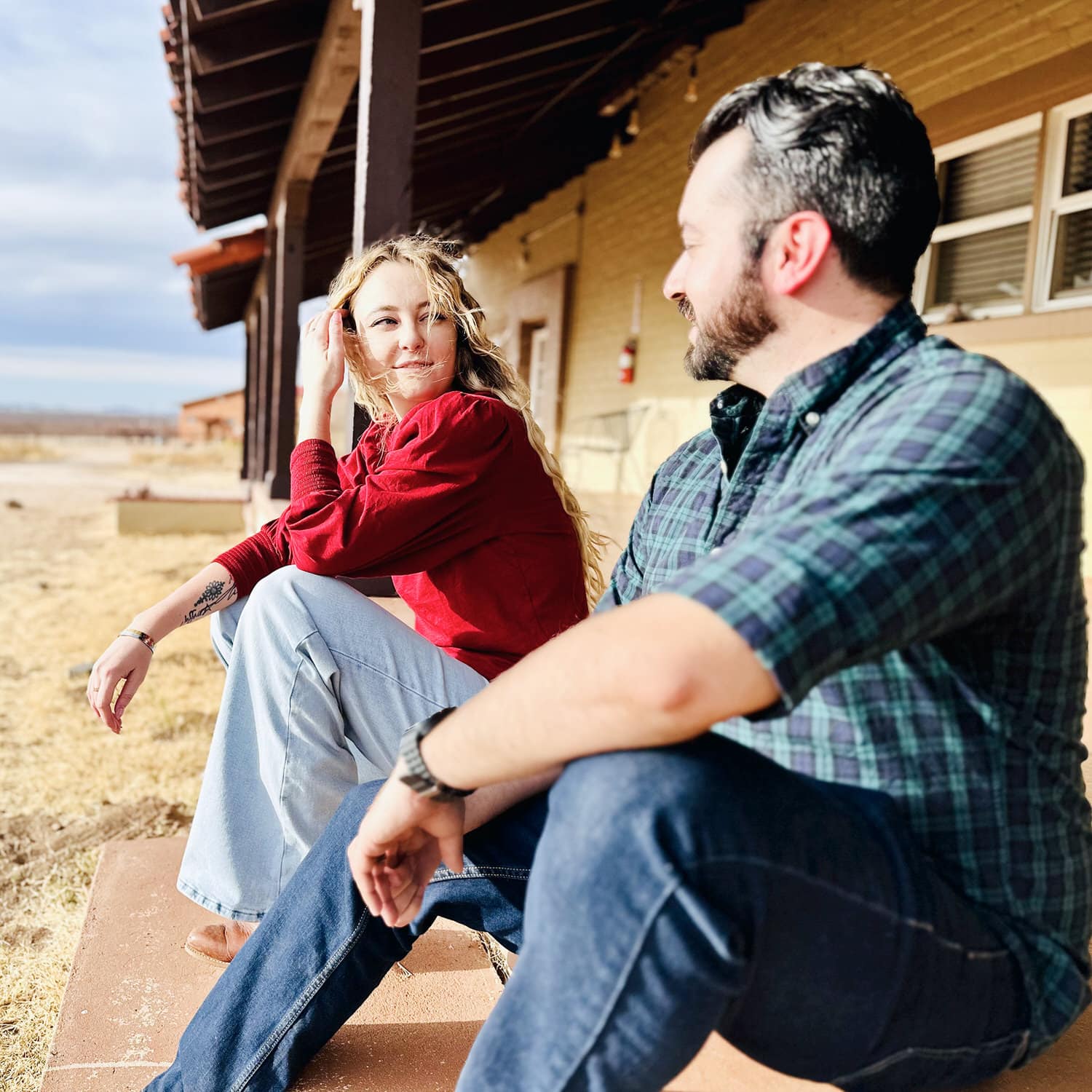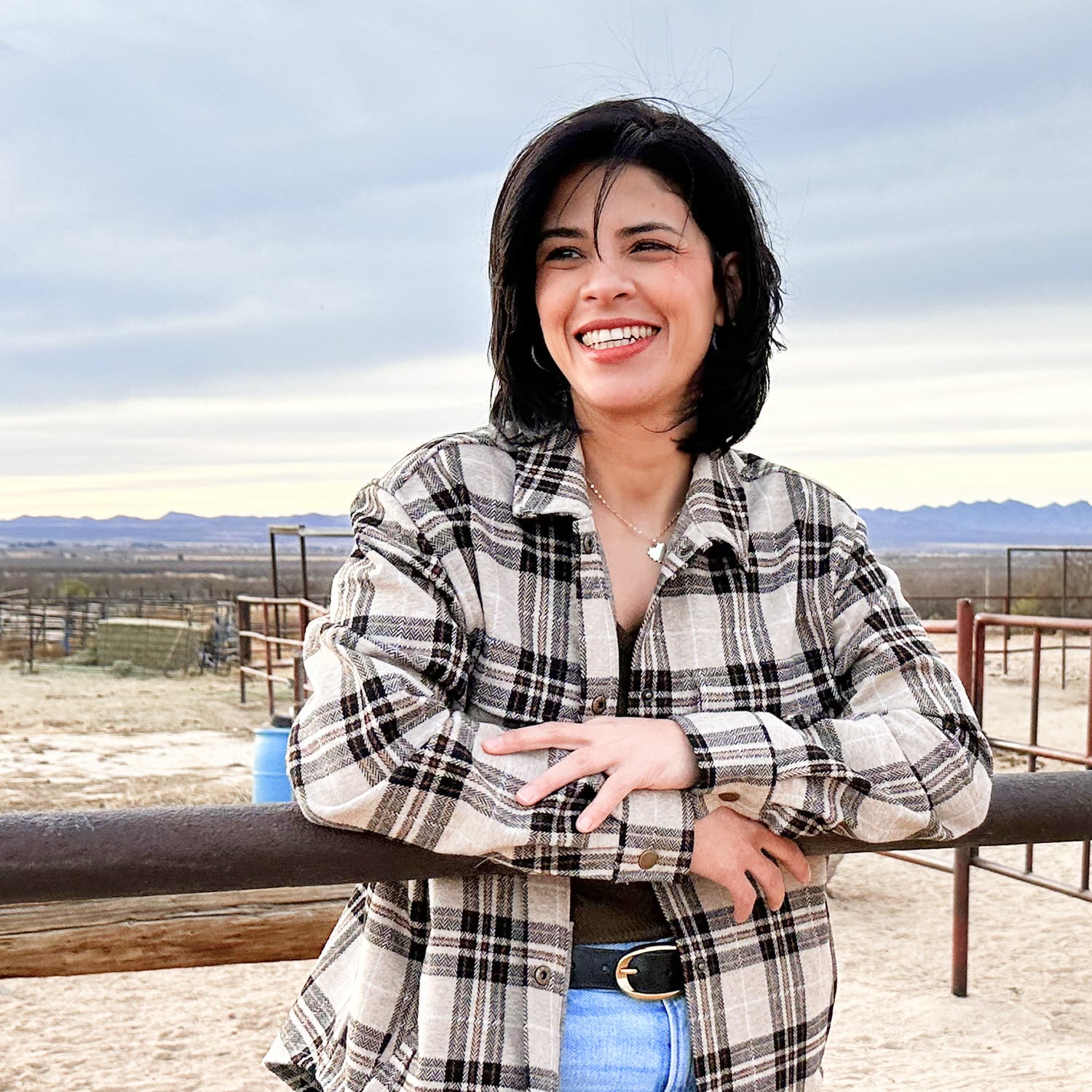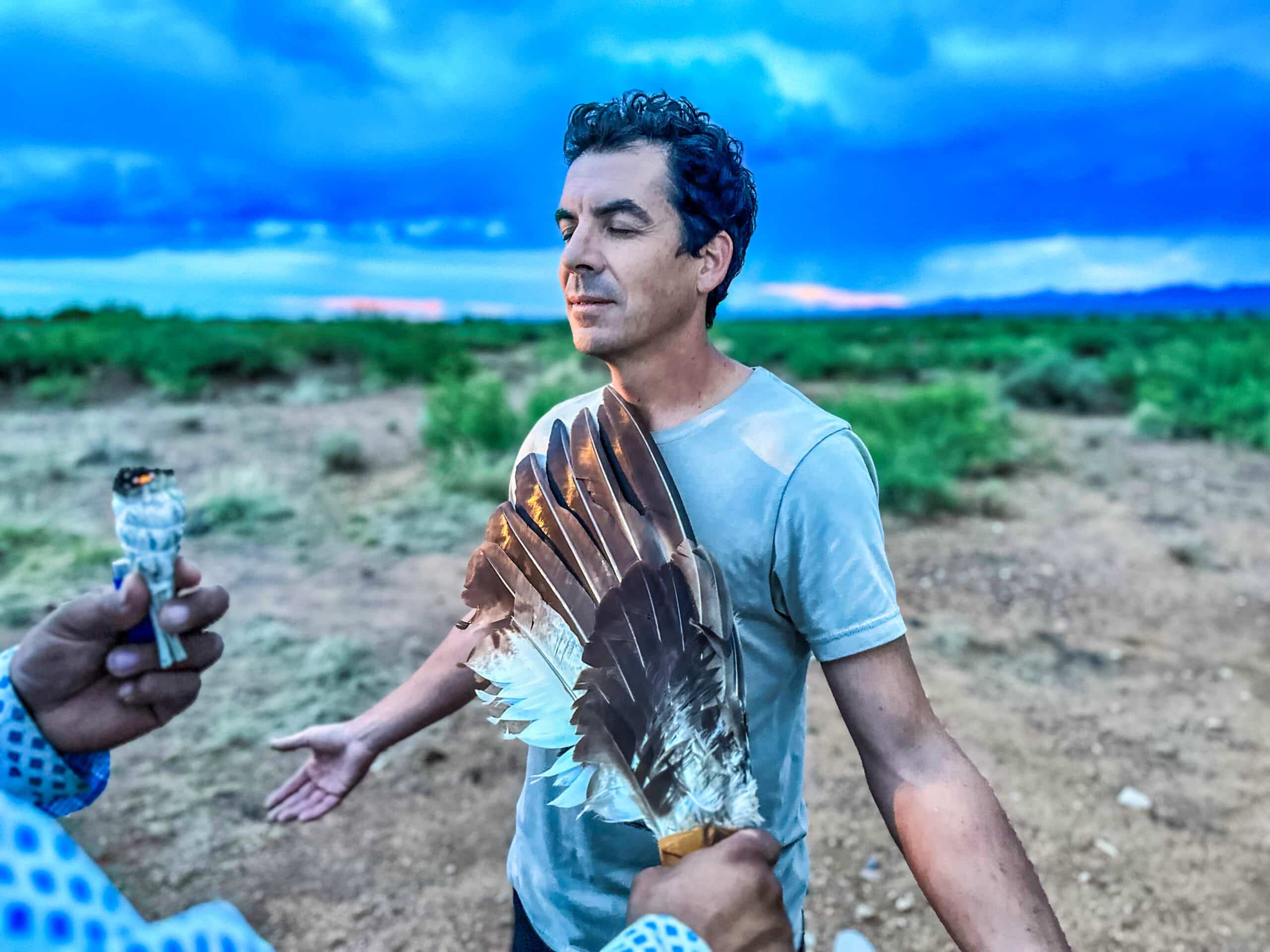Our specialists form a multidisciplinary team of care experts committed to empowering clients with the tools they need to break free from the cycle of addiction.
Evidence-Based Therapies
- Written By: Seven Arrows Recovery Staff
- Published:
- Modified:
- Reading Time: 8 minutes
Evidence-Based Addiction Treatment
Evidence-Based or Evidence-Supported Models refers to an intervention that is shown to result in successful outcomes by scientific evidence. This means that studies have been conducted and extensive research has been documented showing that the treatment has proven to be successful, repeatedly.

Our Unique Therapies at Seven Arrows Recovery
Trauma-Informed Yoga
The regular practice of yoga promotes spiritual and emotional growth. Yoga helps people engage with and control their sensory systems, helping to embrace a meaningful, healing connection between mind, body, and soul. Yoga has demonstrated phenomenal healing and strengthening properties to those in recovery through controlling stress, regulating emotions, building willpower, and elevating spirituality. We utilize the trauma conscious yoga method which is a healing modality that integrates trauma-informed yoga and somatic psychotherapy practices. The Trauma-Conscious Yoga Method℠ – Trauma Informed Yoga Therapy (traumaconsciousyoga.com)
EMDR Therapy
Eye Movement Desensitization & Reprocessing (EMDR) is a form of therapy that utilizes bilateral stimulation (BLS) usually in the form of eye movements, tapping or auditory tones in order to accelerate the brain’s capacity to process and heal a troubling memory, thought, feeling, or phobia.
BLS stimulates the same eye movements which occur during Rapid Eye Movement (REM) or dream sleep. BLS causes two parts of the brain to work in conjunction in order to reintegrate a memory. Some clients can experience relief or positive effects in just a few sessions and others need more sessions. EMDR is effective in treating trauma-related symptoms, whether the traumatic event occurred many years ago or yesterday.
Research has demonstrated that EMDR is effective for the treatment of Post Traumatic Stress, phobias, panic attacks, anxiety disorders, stress, sexual and physical abuse, disturbing memories, complicated grief and chronic pain.
Aspects of EMDR are rooted in indigenous medicine as listed below: Mindfulness – which predates the founding of any formal religion and can be traced back to the healing origins of India Bilateral Stimulation – seen in indigenous medicine and healing practices throughout the world, harnessing the power of dancing, singing, storytelling, silence, and drumming Dr. Francine Shapiro is credited as the founder of EMDR Therapy. For additional reading on EMDR, visit https://www.emdria.org/about-emdr-therapy/
ART
Accelerated Resolution Therapy, often referred to as ART, is a form of psychotherapy with roots in existing evidence-based therapies but shown to achieve benefits much more rapidly (usually within 1-5 sessions). Clients suffering from trauma and other mental health problems can experience remarkable benefits starting in the first session. The client is always in control of the entire ART session, with the therapist guiding the process. Although some traumatic experiences such as rape, combat experiences, or loss of a loved one can be very painful to think about or visualize, the therapy rapidly moves clients beyond the place where they are stuck in these experiences toward growth and positive changes. The process is very straightforward, using relaxing eye movements and a technique called Voluntary Memory/Image Replacement to change the way in which the negative images are stored in the brain. The treatment is grounded in well-established psychotherapy techniques, and the end result is that traumas and difficult life experiences will no longer trigger strong emotions or physical reactions. Importantly, clients do not even have to talk about their traumas or difficult life experiences with the therapist to achieve recovery. Imagine what it feels like to carry a heavy burden – years of carrying the effects of trauma gone in a single ART session. Unbelievable? This is what happens with your ART trained therapist and reprogramming distressing images and memories which have been stored in your brain and now, no longer trigger strong physical and emotional reactions.
Trauma-Focused Counseling
Our team understands the impact of trauma on the mind, body spirit. We utilize a salutogenic asset-focused approach to support clients in discovering capacities and building on current resources. We recognize that addiction and other adaptive/mitigating strategies are ways to manage and deal with pain/distress often from adverse childhood experiences. Adverse Childhood Experiences (ACEs) (cdc.gov).
Somatic Cognitive Behavioral Therapy
Cognitive Behavioral Therapy (CBT) is an Evidence Based type of mental health counseling that helps people address problematic thoughts and feelings, in order to overcome addiction. The intervention works to change unhealthy patterns of thinking and behavior by finding the connections between their thoughts, feelings and actions. Identifying these connections helps to increase awareness of how these maladaptive behaviors can impact recovery during and after treatment. Our team incorporates somatic awareness and healing to our cognitive based approaches.
Feedback Informed Treatment
Feedback-informed treatment (FIT) is an evidence-based practice recognized by SAMSHA where clinicians gather real-time input from clients using structured measures to identify what is and is not working in therapy and then adjust to better meet client’s needs. FIT aims to incorporate the client’s perspective about the therapeutic relationship.
Equine-Assisted Learning
At Seven Arrows Recovery, Equine Assisted Learning plays an important role in the treatment of substance use and to improve overall mental health. Horses communicate through body language and have a keen sensitivity the emotional and mental state of humans around them. They are unique animals that give pure, immediate and honest feedback. The horse and client interaction acts as a mirror-like approach, reflecting a person’s state of being and opening a place for a safe and healing connection. The process is facilitated by a trained Equine specialist and can be critical in uncovering emotions, establishing trust, gaining self-awareness, and elevating emotional intelligence. Equine Assisted Learning in conjunction with one on one therapy enriches the client’s experience, improves the outcome of treatment goals, and provides opportunities for the client to live truly in the present moment.
Motivational Interviewing
Motivational Interviewing is a counseling approach that motivates the client to change a destructive behavior. With substance use disorder, an addicted person’s motivation to quit is complex. Obvious consequences such as health issues, financial problems, legal consequences and social implications can often be ignored. Motivational interviewing addresses the different stages of readiness when it comes to changing a person’s behavior, and works to change a clients narrative one step at a time.
Dialectical Behavioral Therapy
Dialectical Behavior Therapy (DBT) is an Evidence Based Model that focuses on four key areas for long term recovery: mindfulness, distress tolerance, emotion regulation, and interpersonal effectiveness. DBT gives clients tools to improve their ability to regulate emotions, tolerate distress and negative emotions, be mindful and present in the given moment, and communicate and interact effectively with others. DBT is known to improve quality of life and personal relationships.
Adventure Therapy
Adventure Therapy is a form of psychotherapy that uses elements of community, nature, and exercise to push someone outside of their comfort zone, in a safe and healthy environment. Adventure Therapy aids recovery from substance use disorder by improving key elements of health such as physical, social, spiritual, and psychological well being. At Arizona Center for Recovery our adventure program promotes rehabilitation, growth, and spiritual development through the healing power of the wilderness. We take a holistic approach to therapy including recreational activities, equine programs, sacred ceremonies and hiking expeditions.
Family Program
Family members and significant others are affected greatly when a person they love suffers from substance use disorder. Family involvement is an important aspect to the recovery process. The Family Program at Seven Arrows Recovery helps clients and their family members uncover dysregulated patterns that have impacted the family as a whole. Staff work to identify patterns and teach new means of communication to facilitate healing, and encourage families to move forward into recovery together. The Family Program educates patients and their loved ones about substance use and mental health disorders, promoting a safe and open environment for everyone to process and heal together. Participants learn future strategies on how to best support and care for themselves as well as their loved ones.
Invitational Intervention Services
The Invitational Intervention approach is evidence supported best-practice method of intervention that harnesses the power of the family to achieve its mission for individual and long-term family recovery. Seven Arrows Recovery employs Certified Interventionists that are trained to use this modality in order to help families recover as a whole.
Substance Use Disorder Counseling
Substance Use Disorder Counseling teaches clients strategies for managing cravings and avoiding situations that could lead to relapse. This counseling approach works to help patients improve functioning in their personal relationships, work, and in the community. This counseling can take the form of individual, family, or group sessions.
Nicotine Replacement Therapy
Nicotine use is very common among individuals at drug and alcohol treatment centers receiving treatment for substance use disorders. It’s been proven that tobacco use and smoking results in increased risks of tobacco-related diseases and premature death. Smoking cessation is increasingly recognized as an important element of treatment for substance use disorder. Seven Arrows Recovery is committed to the health and wellbeing of our clients. We provide nicotine replacement therapy to those who want to quit.
Relapse Prevention
It is greatly important that all rehabilitation facilities focus on Relapse Prevention. Relapse Prevention is a skill-based, cognitive-behavioral approach that helps clients identify situations that could place them at risk for relapse after discharge. Identified situations could be both internal experiences and external cues. Patients are assisted to develop strategies to address those specific high-risk situations. As clients develop more effective coping strategies, they will simultaneously develop the increased confidence to handle challenging situations once outside of a residential treatment setting.
Art Therapy
While in rehab, sober living, and at treatment facilities, group therapy can help clients express emotions and process past traumas. Art therapy is helpful for people who have underlying psychological issues related to their addictions. With a trained Art Therapist, clients can express and process what they may not be able to say with words through different artistic mediums.
Internal Family Systems
IFS® is an evidence-based psychotherapy that promotes healing conversations to ultimately restore balance in the inner system. This type of therapy was developed in the early 1990s by Richard Schwartz, who developed the approach after listening to people in therapy speak about inner parts within themselves. IFS® holds the position that we exist as a system and have multiple subpersonalities. We also have a capacity and natural tendency to move towards healing. The IFS® model allows individuals to create a map of how their inner system is put together and utilize Self energy to understand and heal the inner system. IFS® is a Salutogenic, non-pathologizing psychotherapy.
Reach out to Seven Arrows Recovery today to talk about our evidence-based treatment program today.
Take the First Step towards the rest of your life.
Reset. Restore. Recover.
Stories of Hope & Healing
Ignite Your Soul at Seven Arrows
Get in touch with the caring team at Seven Arrows Recovery today and find out how we can help you have a life changing experience at our drug & alcohol rehab in Arizona.


















